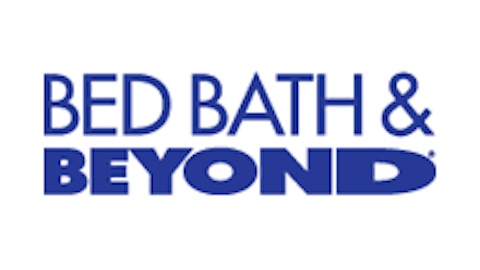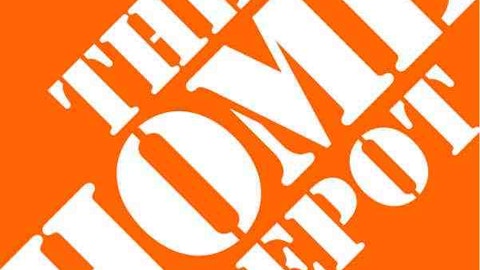Don’t tell closeout retailer Tuesday Morning Corporation (NASDAQ:TUES) the future is digital. It recently announced that it’s going retro, closing down its e-commerce site in favor of focusing on its 850 brick-and-mortar stores.

Sure, there have been examples of retailers that have been slow to fully embrace the Internet. Bed Bath & Beyond Inc. (NASDAQ:BBBY), for example, only recently decided to spend the money necessary to make its website a more viable part of its business. Compared with Williams-Sonoma, Inc. (NYSE:WSM), for instance, which was generating more than a third of its sales from its website more than a year ago, Bed Bath & Beyond Inc. (NASDAQ:BBBY) got around 3%. So a portion of the $350 million in capital expenditures it will be spending this year will be on website enhancements. In June, it launched a new website for its buybuyBaby division and will roll out its new Bed Bath & Beyond Inc. (NASDAQ:BBBY) website by the end of its fiscal second quarter.
Yet because of the nature of the industry, many closeout companies and deep discounters don’t sell items online. Big Lots, Ross Stores, and Fred’s all have an online presence, but there’s no shopping cart to purchase items.
Still, an article in The Wall Street Journal points out how TJX, the parent of closeout retailer T.J. Maxx, is launching a new website for its stores, while Nordstrom and Saks plan to invest heavily in Internet sales for their outlet businesses. Even aspirational brand Coach has dedicated a separate website to its factory outlets.
So where Tuesday Morning Corporation (NASDAQ:TUES)’s decision to eschew the digital revolution might be a “return to its roots,” as it says, it’s also a missed opportunity to gain ground on its rivals. While it argues that online sales accounted for only about 1% of the total $812 million in annual sales last year and that it was losing money on the operation, it apparently hadn’t invested the necessary capital in the venture to make it more successful. Sometimes you have to spend money to make money.
Cost Plus, for example, which was acquired by Bed Bath & Beyond Inc. (NASDAQ:BBBY), reported that e-commerce sales represented 3% of its total revenues in 2011, up from 2% the year before, and was considered a increasingly significant component of the overall business that it expected to be a $100 million business for them.
As we saw with Black Friday sales in 2012, online sales surged 26% the day after Thanksgiving, crossing over the $1 billion mark for the first time ever, with 57.3 million Americans visiting e-commerce sites, up 18% from a year ago. The Journal article goes on to note that online sales surged 16% last year to $224 billion, or 5% of all consumer purchases, and the Commerce Department just released data showing they were up another 18% in the second quarter of this year, returning to pre-recession growth levels.
By giving up its website, Tuesday Morning Corporation (NASDAQ:TUES) is giving up any chance of participating in that growth, of differentiating itself from those rivals that also don’t let shoppers shop online, or of keeping up with those that do. And that just might mean the sun will set on the closeout retailer’s investment potential in the future.
The article Is the Sun Setting on Tuesday Morning? originally appeared on Fool.com and is written by Rich Duprey.
Fool contributor Rich Duprey has no position in any stocks mentioned. The Motley Fool recommends Bed Bath & Beyond and Coach and owns shares of Big Lots and Coach.
Copyright © 1995 – 2013 The Motley Fool, LLC. All rights reserved. The Motley Fool has a disclosure policy.




